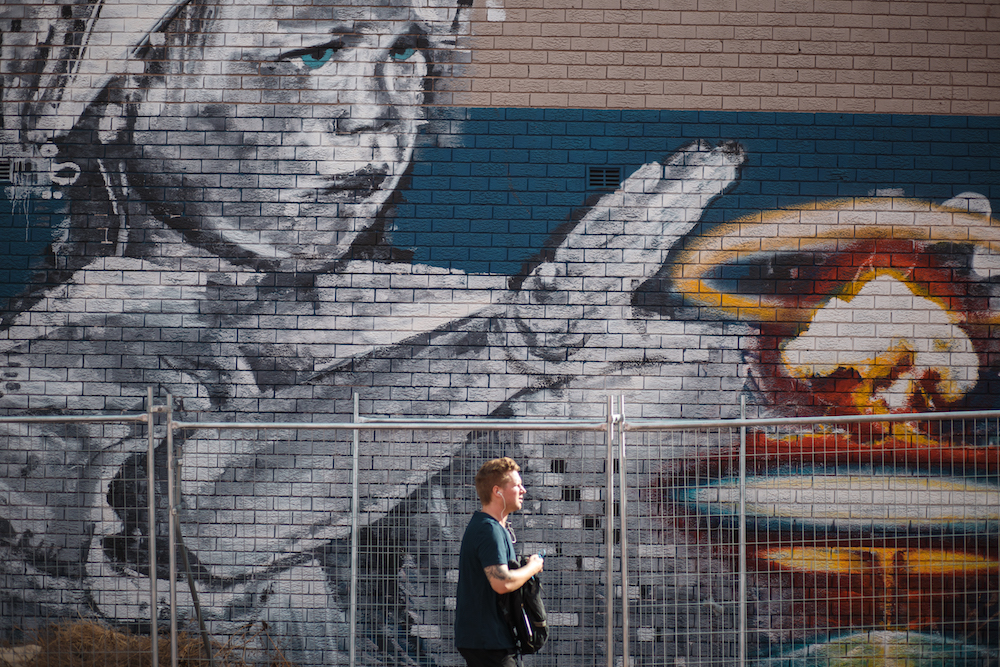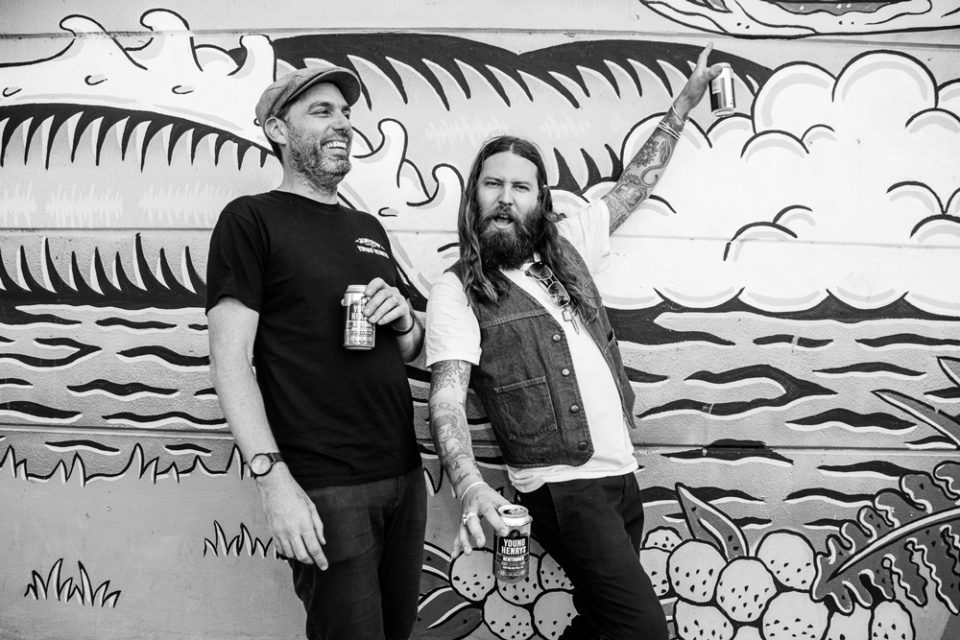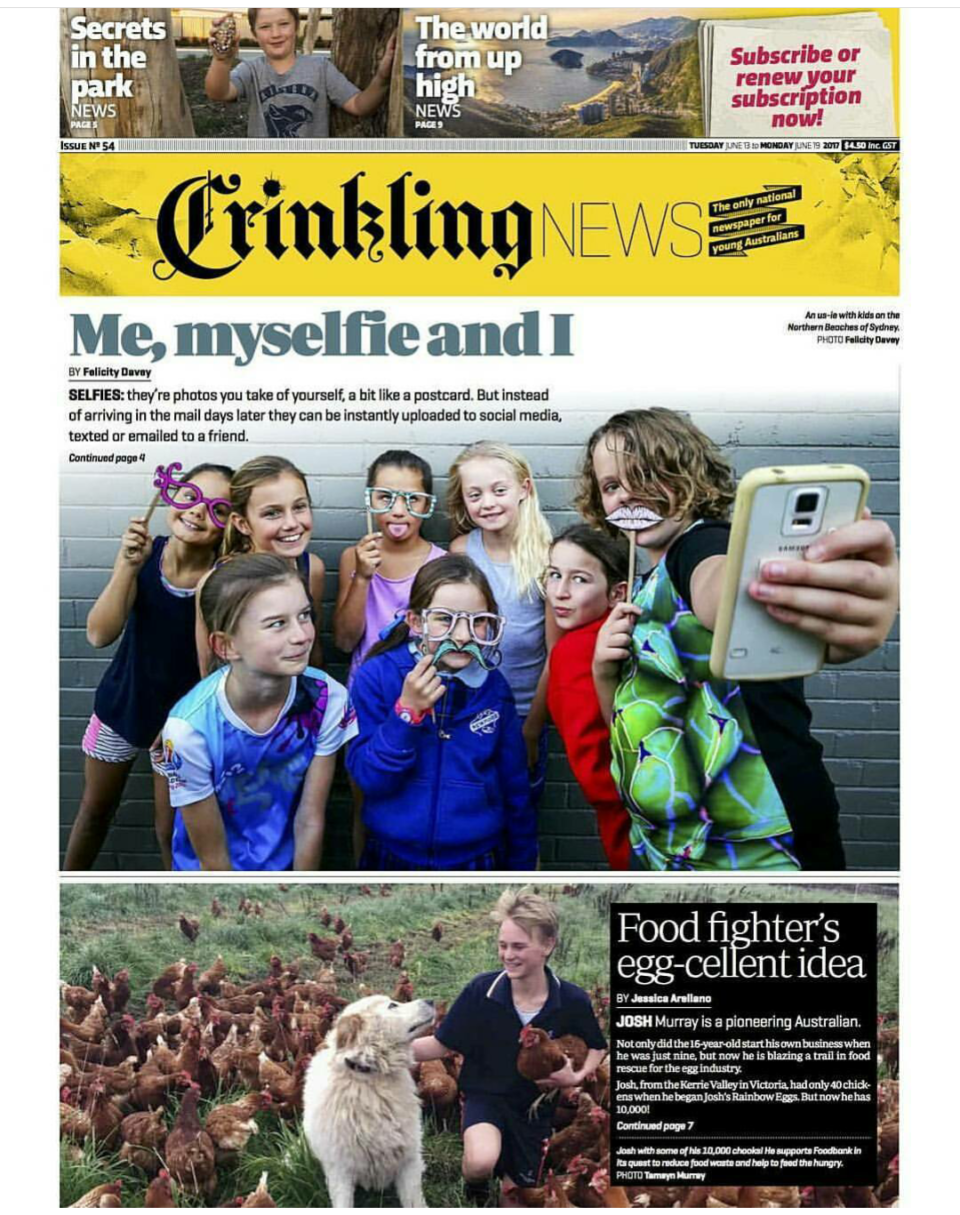“When did this suburb turn to crap?” is a question with no broadly applicable answer. This is because crap exists chiefly in the sense of its beholder. For example: your newest neighbour may be thrilled to find they can freely use French wine terms down at the renovated pub, whereas you may long only to pour factory beer down the throat that utters “terroir”.
We all hold our custom yard-sticks for the measurement of local crap. We all hold our memories, too. This is how fresh young love and tired old hatred for a home may co-exist. I think Newtown is Barangaroo with stale beard oil; she finds it is as “happening!” as the promise of a real estate brochure. One woman’s shit is another’s shortbread. Or, biscotti, probably—I don’t know. Whatever it is the “happening!” investor is nibbling with their single-origin these days.
I’d been a Newtown nuisance, too, though. As my rising knowledge class of prats moved in, working class families moved out. Katarina from next door said, “not another bloody journalist” when I came by to introduce myself. She was entirely justified in her contempt.
I quickly adjusted to contempt for all others who were not of my class and its belief system. People less committed to “progressive values” and tempeh lunches than me were all crap, except for those I pitied or idealised. Which is to say, I lived in a bubble of confirmation bias. Newtown was like, is probably still like, a real-life Facebook feed: we all agree on important moral matters, and only the foolish dissent.
Well, then. I lost the job, the house and, for a bit, the will to wear pants not made from terrycloth. My bubble burst, but others I knew remained buoyant. I became other from what I had long believed myself to be: thoughtful and so deeply, deeply tolerant of difference.
Poverty is one of those rare things we can all agree is shit. Poverty is sure as shit shit. If briefly experienced by a mildly shit person, it can be instructive.
I remember moaning about my sorry lot to a flight attendant at an Erko barbecue. I remember she waved her sausage at me as she advised, “Stop banging on” and to, “remember, this loss is good for you.”
For some years, I remembered only the urge to grab that snag and shove it between her boobs, possibly shrieking, “What would you know about the hard work and disappointments of a finely trained mind like mine?” In time, I remembered that hard work and disappointment are the forces that shape most in the world of the present.
I’d thought it was communication – my business – that made all the difference in the world. I’d supposed good talk, good education and a positive attitude moved entire nation-states. I had come to settle upon the, largely unexamined, belief that the material world does not shape our ideas, but that the reverse was as true as could be. Wasn’t where you lived and how much you had that changed you. Oh, no. It was only your failure to be touched by great ideas.
This loss was good for me. This hardship did upturn my way of thinking. I am not saying there is nobility in poverty or that wisdom only comes when assets disappear. I am saying that a flight attendant—a worker who lugs food, mops up sick and rarely sleeps in her own bed—sees what a knowledge worker often misses: our thoughts are largely formed in material reality.
One might feel profoundly moved by a news item or a television broadcast. But, one is most profoundly shaped by surrounding reality. And if that reality is one populated by knowledge class people who say, “our better ideas can change the world!”, then all you get is some “awareness raising”. No change to reality.
Newtown has changed. It’s some Mason Jar Theme Park, unrecognisable to me. Thinking didn’t make it different. The cost of housing did.





